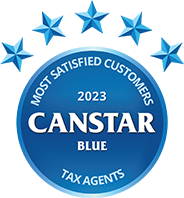New tax laws from this tax season: What do they mean for you?
Tuesday, 21st July 2020
With so much change, it can be difficult to keep track of what you are eligible to claim when it comes time to doing your personal tax. To help you prepare for tax time and the new financial year, here are the key changes to individual tax laws you need to know. Working from home tax shortcut As a result of the Coronavirus pandemic, many employees have been working from home more than usual. To cater for this, the ATO introduced a work-from-home tax shortcut giving you the option to simplify the way you claim your home office expenses. If you had to work from home between March and June 2020, and now from July to September 2020, you can claim 80 cents for each hour you worked from home, to cover all deductible running expenses, including phone, internet, electricity and furniture. You do not need receipts to claim expenses, but you will need a record of the hours worked from home. It’s also worth noting that if you use this method, you can't claim any other expenses for working from home. This tax shortcut may be extended beyond September, depending on how the coronavirus pandemic continues to unfold. Low and middle income tax offset If you’re on a low or middle income, you’re eligible for a tax cut under the government’s new tax changes. This offset is available for the 2018–19, 2019–20, 2020–21 and 2021–22 income years. A tax offset quite simply means you pay less tax on your taxable income. It’s an important measure to help boost household spending and keep the economy afloat during the Coronavirus pandemic. So if you are an Australian resident for income tax purposes and you pay tax on your taxable income, you may be eligible for both the low income tax offset, and the low and middle income tax offset. What this looks like: Anyone earning between $48,000 and $90,000 will secure a maximum offset amount of $1,080. If you’re earning over $90,000 but less than $126,000, this amount will change, gradually reducing to zero for high income earners. You don't need to complete a section in your tax return to get these tax offsets. Your eligible tax offset will be calculated for you when you lodge your tax return. Updates to minimum wage and weekend penalty rates On 19 June, the Fair Work Commission declared an increase of 1.75% to the minimum wage, which means if you’re on minimum wage, from 1 July you’ve been earning an extra $13 a week. What this looks like: If you earn $19.49 an hour, this will have increased on 1 July to $19.84 an hour. In the final round of phased cuts to Sunday penalty rates, retail workers will see your penalty rates reduce further, from 165% to 150%. Early access to superannuation If you want in on the early access super scheme, from 1 July, you can apply for the next round of early super access up to $10,000. However, you might want to consider whether it’s right for you. The good news is, these withdrawals are not considered assessable income. Superannuation contributions On 1 July, the age limit for contributing to your spouse’s super increased from 69 to 74, which means if you’re older than 70 you can receive superannuation contributions from your spouse, provided they meet the work test. For low income earners and stay-at-home parents who are accumulating little to no super for their future, this can help even out super across both partners. Also from 1 July, those aged 66 or under can bring forward three years’ worth of concessional contributions to their super. While these contributions are capped at $25,000 a year, if you didn’t reach this cap then you are able to advance the unused amount to create one concessional contribution. Bringing it all together This year has been rife with tax reform as a result of COVID-19, bringing benefits and financial relief for many individuals. Individual income tax can be complex, and everyone’s situation is different. If you’d like professional advice, consider working with one of our tax professionals to help manage your tax and lodge your tax return. Not only will we help you find all of your legal tax deductions and reduce your overall tax, our fees are 100% tax deductible. No matter what changes are coming in the foreseeable future, an ITP tax professional will know how to minimise your tax bill. ITP Queensland have looked after Australian businesses and individuals for 50 years and offer tax as well as bookkeeping services. If you have any questions or need help, reach out and speak with a tax professional today. Whilst taking every precaution to stay safe, our tax professionals are available during normal business hours to help with any enquiry. Contact one of our offices and see how we can help you today. Call 1300 555 773, or book online and one of our tax agents will be in touch to help.

